Large commercial trucks or semi-trucks (also referred to as tractor trailers, 18-wheelers, and big rigs) are involved in an average of 500,000 traffic accidents every year, according to the US DOT. Many personal injury and wrongful death claims are filed after someone is injured or killed in an accident with a large truck.
Most Common Types of Large Truck Accidents
Large trucks can cause devastation when negligence or improper procedure results in a traffic accident. A few general types of accidents are characteristic to semi-trucks, tractor trailers, and 18-wheelers
- Jackknifing: During a hard braking event, a trailer’s air brakes can lock up under the heavy stress and the trailer slides and rotates forward – perpendicular to the cab. The motion resembles a folding pocketknife, hence the term “jackknifing”.
- Lost/Loose Cargo: Some semi-trucks tow an open or flatbed trailer with large, heavy parts secured to it. Common large cargo includes steel I-beams, large machine parts, or rail-road car wheels. Improperly secured cargo or damaged loading straps may break loose and allow several tons worth of damaging cargo to plummet to the ground below.
- Rollovers: Most large trucks carry a high center of gravity, as the cargo floor rides three to four feet off the ground. Negotiating a sharp curve with slightly too much speed and emergency braking situations can both cause these large trucks to flip over onto their sides, crushing anything beneath them.
Compensatory Damages and Large Truck Accidents
If an injury results in an accident between a private vehicle and a large truck, the injured party or surviving family members may have a right to recover certain types of damages from the trucking company, also called an operator or carrier.
- Medical Expenses: In personal injury cases, damage awards typically include full reimbursement for emergency surgeries and medical treatment received.
- Lost Wages: The injury victim is often entitled to recoup funds for the accident’s impact on salary and wages. This includes income already lost due to the claimant’s injuries and inability to work plus any money the victim could’ve earned in the future, were it not for the accident. In a personal injury case, damages based on future income are referred to as compensation for an accident victim’s “loss of earning ability.”
- Future Medical Treatment: This includes the costs of any future expenses such as follow up surgeries, adaptive medical devices, prescriptions, therapies, and long-term rehabilitation.
- Mental Anguish: This factor is usually linked to more serious accidents and severe injury. Emotional distress damages are meant to compensate an injured party for the psychological impact of an injury including fear, anxiety, and sleep loss. Mental anguish may also be referred to as emotional distress.
- Diminished Quality of Life: Injuries caused by an accident may prevent the injured person from enjoying day-to-day pursuits like hobbies, exercise, and other recreational activities. They may be entitled to receive “loss of enjoyment” damages. Damages may also be awarded designed to compensate the victim’s family for its loss of the victim’s companionship and support.
References:
US DOT














